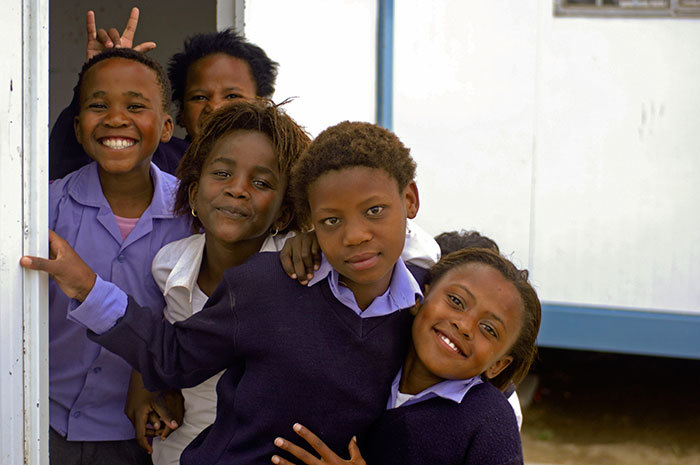Beating children leads to a lifetime of underachievement
27 May 2015 | Story by Newsroom
Children who are beaten by their parents do badly at school, often drop out, and ultimately get lower-paying jobs, according to recent research. The findings are particularly alarming in light of the high levels of child abuse in South Africa.
A study of about 5 000 children in Cape Town, that began in 2002, has found that parents who punish their children physically are sentencing them to a lifetime of underachievement.
It also found that being beaten during early childhood causes permanent biological changes to the brain.
The findings from the study are particularly alarming in light of the high levels of child abuse in South Africa.
Being hit was associated with an 18% reduction in numeracy test scores. "This may seem small, but it is larger than the impact of the mother's education and of the household's income on numeracy test scores," says Duncan Pieterse, at the time a PhD student in the Department of Economics.
Also, being hit hard or pushed increases the probability of a child dropping out of school by 15%; other forms of maltreatment – such as having a fear of being hurt, and being 'put down' through negative comments by adults – have similar effects.
Pieterse found differences across racial and gender lines. A higher proportion of coloured youth have been hit hard, pushed, and psychologically undermined compared with other groups; and a higher proportion of girls were maltreated than boys, he found.
Maltreatment during childhood – measured as 'being hit hard' – has a bigger impact on numeracy test scores of coloured youth than of black youth, says Pieterse.
A report released by the Children's Institute at UCT last year said that more than half of South African children frequently experience some form of violence from a very early age.
Judy Andrew, a retired primary-school teacher who now works in the non-government sector, said some children might confide in a teacher; but many "hide it and feel ashamed".
"Often the child doesn't even realise that the behaviour at home is unnatural, and the abuse goes by undetected – by the school, and even by close friends and the community," she said.
A spokesperson for the Department of Basic Education, Elijah Mhlanga, said children who were abused were "generally robbed of an opportunity to continue their schoolwork at home".
In order to tackle this challenge, the department had "collaborated with the Department of Social Development, which has programmes that support abused children".
"Pupils who struggle in school should be given additional support. This we do to ensure they reach the desired levels of competence in numeracy and literacy, but also to reduce the drop-out rate."
But researchers and practitioners say the tide can only turn through prevention, rather than a responsive approach to abuse.
Assoc Prof Shanaaz Mathews, director of UCT's Children's Institute, said: "To shift the daily experiences of children, an intersectoral approach is needed." It is vital to change social norms and attitudes that support the use of violence.
According to Pieterse, interventions that had proven most successful included "prenatal and early childhood home visits by nurses who can reduce maltreatment by low-income, unmarried mothers for up to 15 years after the birth of the first child".
Duncan Pieterse conducted the research as part of his PhD in the Department of Economics. Pieterse is currently director of microeconomic policy at the National Treasury. You can read more about the findings of this study here.
Story by Tanya Farber. Image by Henry Trotter, Wikimedia Commons. This story first appeared in TimesLIVE on 24 April 2015.
 This work is licensed under a Creative Commons Attribution-NoDerivatives 4.0 International License.
This work is licensed under a Creative Commons Attribution-NoDerivatives 4.0 International License.
Please view the republishing articles page for more information.










